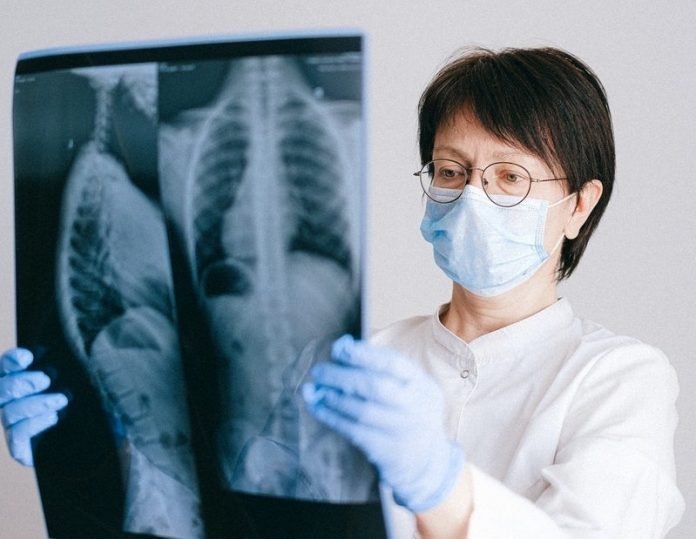
After infection with SARS-CoV-2, where does the immune system store the memory to provide long-term protection against reinfection?
In a new study from Columbia University, researchers found that the memory of the infection is primarily stored in T and B cells within the lung and the lymph nodes surrounding the lung.
This is the first direct evidence that such centers are established and persist after SARS-CoV-2 infection.
This persistence of germinal center B cells can ensure long-term maintenance of antibodies in circulation and the continued maturation of the immune response.
The emergence of SARS-CoV-2 has provided immunologists with a unique opportunity to study how older individuals respond to new pathogens.
In the study, the team examined tissues from four COVID survivors—ages 11 to 74—who died later of unrelated causes.
The individuals died in 2020 before vaccines became available, and their tissues were compared to tissues obtained from individuals who were not infected.
After age 40, the immune system does not create many new T cells that are designed to memorize encounters with new pathogens.
But the study found that a robust immune memory of a new pathogen can be established even in older adults.
By extension, these findings suggest that vaccines are most likely to generate more efficacious responses in older individuals than has previously been thought.
These new findings have important implications for designing and administering vaccines in ways to promote the type and localization of immune memory that is generated from natural infection.
They suggest that to improve protection against the virus, vaccines should target the memory immune cells within the lung and its associated lymph nodes, which can be accomplished with nasal sprays of disabled viruses.
If you care about COVID, please read studies about a two-drug combo that treats COVID-19 effectively and findings of this drug can prevent 100% of symptomatic COVID-19 infections.
For more information about COVID and your health, please see recent studies about this common blood thinner drug can help inhibit COVID-19 virus and results showing that these 2 anti-inflammatory drugs may improve recovery from severe COVID-19.
The study is published in Science Immunology. One author of the study is Donna Farber, Ph.D.
Copyright © 2021 Knowridge Science Report. All rights reserved.



